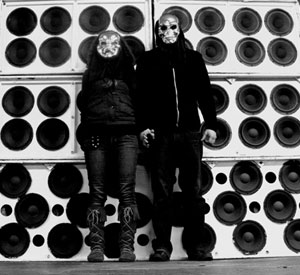By Matt Hinch
Over the course of the Deftones career there has been a steady progression from the youthful aggression of their debut, Adrenaline to the much more melodic Deftones we hear today. Being on the forefront of the nu-metal movement, some rapping and turntable work had been a part of their aesthetic. While there isn’t much rap style to Chino Moreno‘s vocals anymore, turntablist Frank Delgado is a full time member of the band (and has been officially since White Pony). Still retaining the chunky riffs the band is known for, while soaking it all in melody is where we find Deftones with Koi No Yokan. This is the second album Deftones have released with Sergio Vega (ex-Quicksand) temporarily filling in on bass for Chi Cheng following a horrific car crash.
2010’s Diamond Eyes and KNY are the band’s strongest releases since White Pony. Forging ahead in spite of Cheng’s condition seems to have focused the band. They have fully integrated the balance between melody and heaviness within the songs rather than from one song to the next. The shifts from delicate to destructive may be abrupt but it’s less of an on/off switch between tracks than previous releases. Anyone who has followed Deftones’ career to this point should know what to expect. Abe Cunningham‘s uniquely timed drumming style and Stephen Carpenter‘s down-tuned crunch make up the core of their sound. Both of their signature styles remain while overall the album is fleshed out. Magnificent production lifts the album to another plane. Its clarity makes it feel like it’s off the ground. This works perfectly with the album’s cover. The visual of glass walls at a great height reflects the senses that one feels while the album plays. Further to that, the streaming neon in the liner notes can represent both the urban feel of KNY as well as the shifting textures.
What KNY really comes down to is the hooks. Carpenter’s riffs have always been at the ready to incite some furious head bobbing and that’s no different here as evidenced by the opening salvo of ‘Swerve City’ and a monster riff in ‘Rosemary’. Classic Deftones. Also classic, and maybe more prominent (at least with the ladies) is Moreno. Employing his trademark transition from visceral screams to melodious crooning, the vocal hooks on KNY are huge. Moments like the chorus of ‘Graphic Nature’ are guaranteed to infiltrate and incubate. Emphasizing the catchy nature is the fact that they hold to more or less traditional song structures. There are definite verses and choruses which circle back around to really sink in. What stands out here as opposed to previous releases is the electronics. Almost always present, whether subtle or overt their inclusion adds a level of nuance. Not usually one for synths, I find that they work within the context of KNY and Deftones in general, especially on ‘Entombed’. The track shimmers with the tone and touches of ambiance. At times it could even be described as trippy.
KNY may be Deftones most melodic album to date. However, they maintain enough crunch so as not to sound like they’ve gone soft. ‘Poltergeist’ and ‘Gauze’ in particular have parts heavy enough to remind one of their debut. As with any band this far into their career, any new new release is sure to garner new fans hearing them for the first time. KNY does well in that regard, Deftones still sounding like themselves enough that new fans exploring their back catalog shouldn’t be disappointed. By the same token, those who have yet to develop a taste for Deftones may not necessarily find anything here to change that and old fans should delight in their continued high quality output.
(Warner Music Canada)


